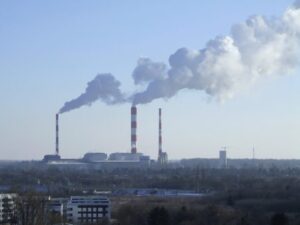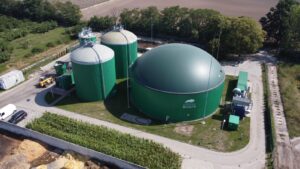Works are underway on the final draft anti-smog legislation. Judging from consultations conducted by Piotr Woźny, Deputy Minister of Entrepreneurship and Technology, the scope of these regulations may be significantly extended – writes Teresa Wójcik, editor of BiznesAlert.pl.
Although the new regulations will continue to apply only to combustion in domestic installations, the participants of the consultations point out that we are mostly poisoned not only by what we burn at home, but also by the installations in which we are burning.
Eliminate trash heating and „slovens”
That is why the anti-smog program must focus on the full elimination of pollution produced by households, heated with poor quality coal and coal waste burned in „slovens,” old, worn-out furnaces and boilers. Industrial installations – including large-scale power generation – have all desulphurisation plants and filters required by EU law. Therefore, they can safely burn coal sludge and flotation concentrates. However, this is not the case for household installations.
A lot depends on standards
The amendment of the Act and executive regulations on solid fuel quality is part of the government’s „Clean Air” programme. Since October last year, emission standards for solid fuel boilers have already been regulated, meaning that it is no longer possible to produce those that do not meet the standards for reducing emissions of harmful substances. According to the amendment, their sale will be prohibited from 1 July 2018. The idea is good, but everything depends on which quality standards are implemented. Until recently, the Polish Mining Group and Tauron Wydobycie managed to convince the Ministry of Energy to remove sulphur content standards from the regulation. Now the sulphur abatement standards have returned to the draft, but it is not yet clear whether this is enough to shut down access to poor coal quality. Until now, consumers have been dependent on retailers who did not have to provide data on the calorific value of the product or on its particulate and sulphur content. Currently, the UOKiK (Office for Competition and Consumer Protection) will be responsible for fuel control.
In order to ensure that the standards of solid fuel are enforced, certificates will be in force on the seller’s side. A customer who wants to buy a given type of coal will have to show the certificate to which boiler he buys fuel.
Poverty inhibits change
The projects of revising the amendment to the „anti-smog” package are currently being consulted with experts and interested circles, as I could see yesterday (8 February), when Deputy Minister Woźny conducted discussions with a group of representatives of the social side, local governments, and solid fuel producers.
The inhabitants, i. e. Poles earning average amounts (in the sense of the median salary, not the national average of income presented by the Polish Central Statistical Office (GUS)), burn coal not because they like it. They do so because this way of heating is within the limits of their home budgets.
It is clear that the coal merchants are holding together in a way that they form an important lobbying activity. But they are right in saying that the rapid introduction of „environmental performance” requirements and the prevention of low emissions, will mainly affect the poorest and most numerous part of the society. They also pay a great deal for the boilers, which are exorbitantly adjusted to the energy class. The result of all this? It is already visible. It is a blossoming „grey” zone of bypassing self-government regulations; companies sell some eco-coal and other miraculous fuels with unknown composition and unexplored environmental effects.
The thermal energy supplied to households in Poland is relatively expensive in relation to people’s income:
Poles spend on average 12% of their household budget on energy and heat, compared to 6% in the EU. In the years 2005-2010, on average about 22% of the Polish population, i.e. about 8.6 million people, were not able to cope with the costs of heating flats in winter to an extent that would ensure thermal comfort. Anti-smog resolutions only increase these costs – as we read in the opinion of the IGSPW (Chamber of Commerce of Polish Coal Sellers).
The Chamber estimates that about 1 million tons of waste is burned in our country every year, and the local governments have wrongly assessed the so-called pulverised coal and other mining waste, which is not suitable for incineration due to its high emission level. Pulverised coal is a very fine form of coal, so it differs fundamentally from the so-called flotation concentrate, it is a kind of powder.
The „Smog Alarm” campaigners are accusing coal sellers of lobbying – that under the pretext of protecting the poorest people they want to protect their interests, i.e. sell as they used to.
In fact, it uses them to defend its own financial interests and to push for solutions that are bad for Polish air and diverge from the European standards but are good for coal sellers – as we read in the opinion of the Polish Smog Alarm. However, even PAS ecologists see a need for financial support for families when purchasing a boiler and adapting the installation to the conditions of anti-smog resolutions on the level of 50 to 100% of investment costs. But this support – in their opinion – should be directed only to the poorest people.
Jadwiga Emilewicz, the new Minister for Entrepreneurship and Technology, has a hard nut to crack right from the start. A few days ago, RMF FM announced a revision of the draft law on coal quality, which should be understood primarily as the permissible sulphur content in the black gold. We are waiting for the matter to continue.








